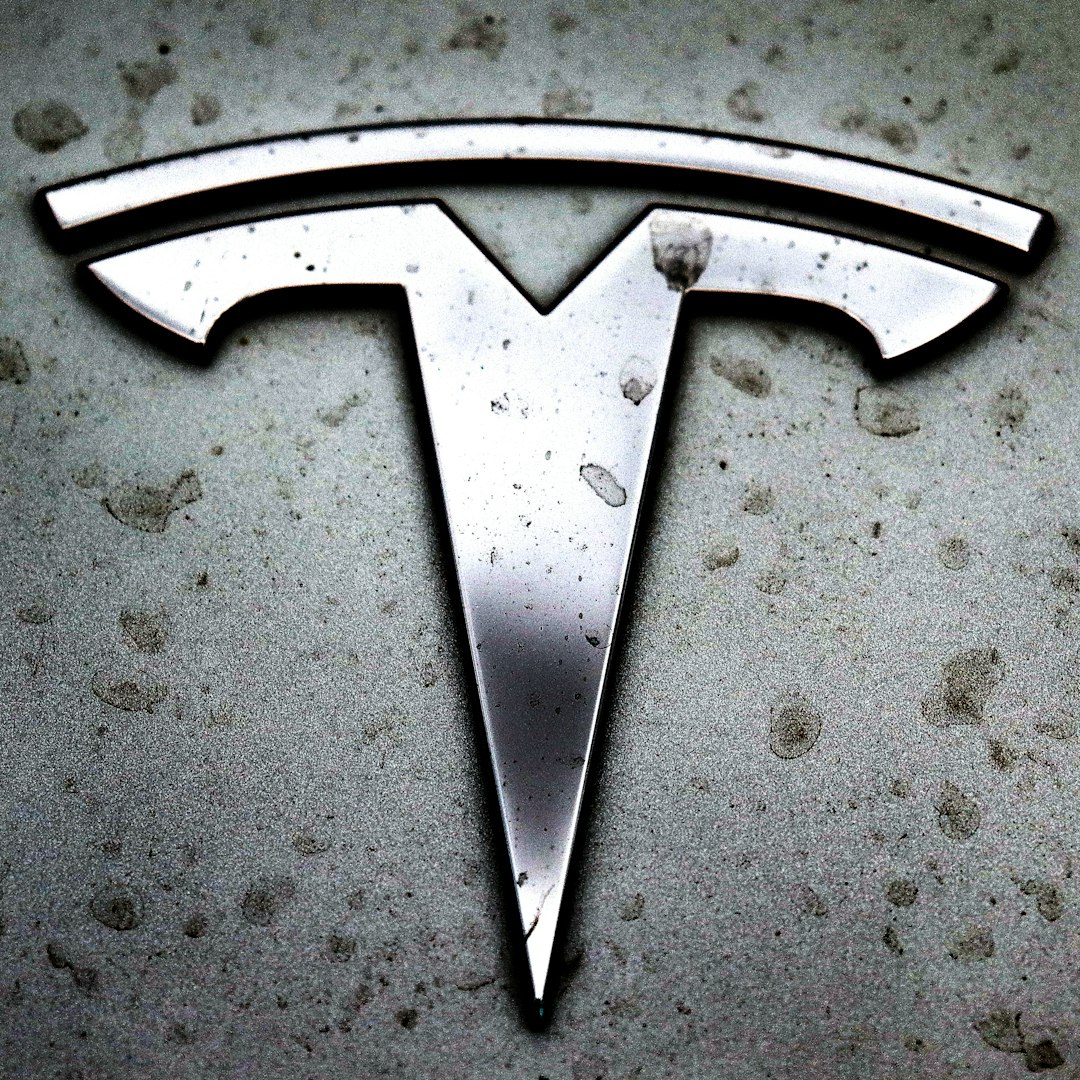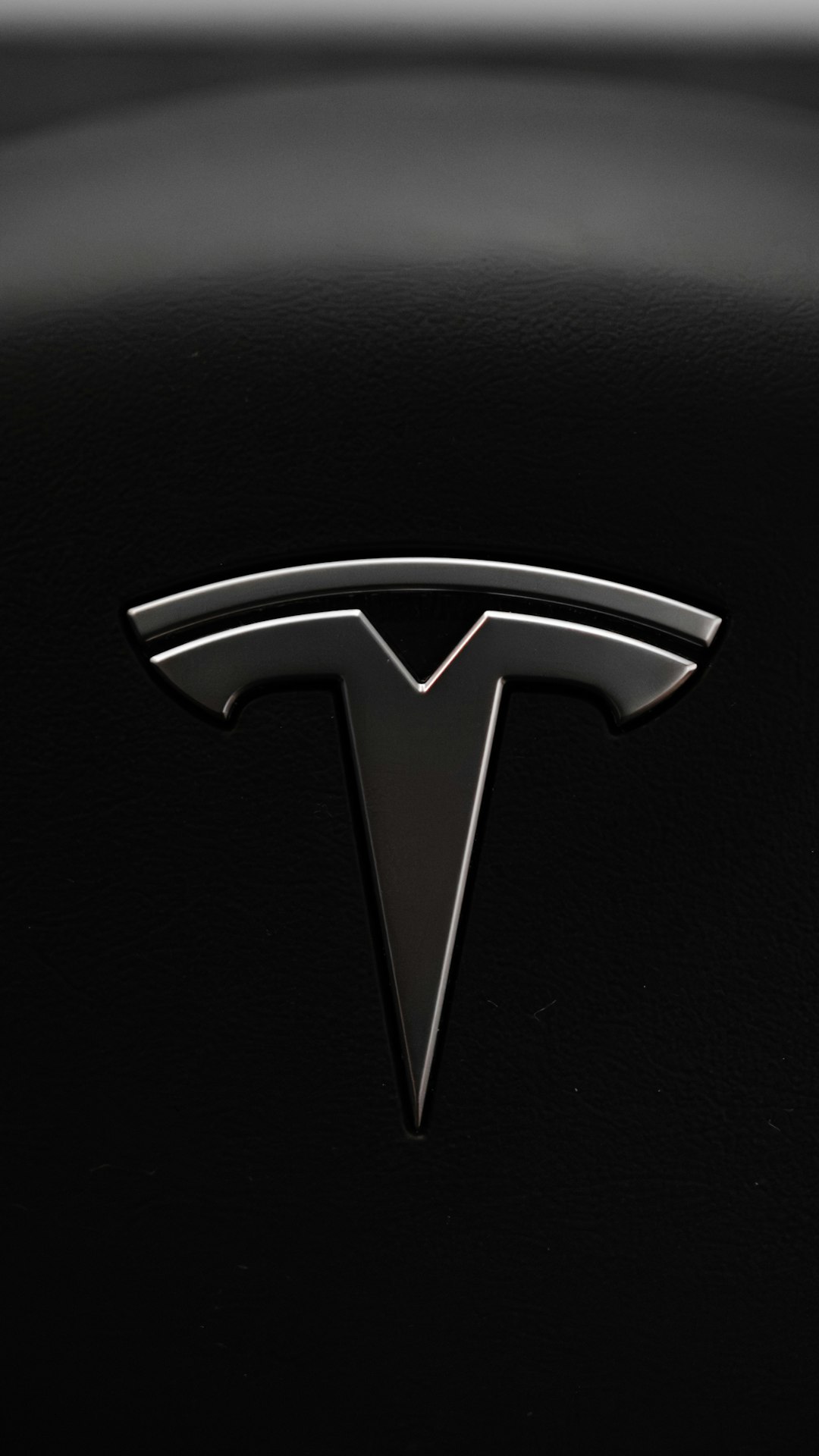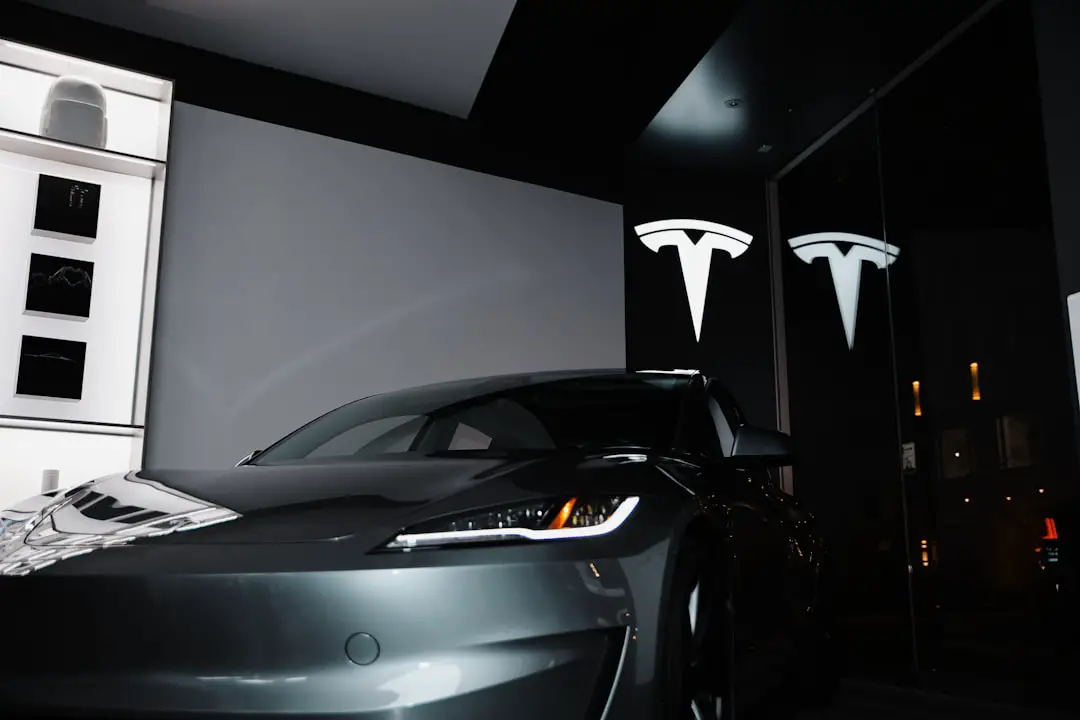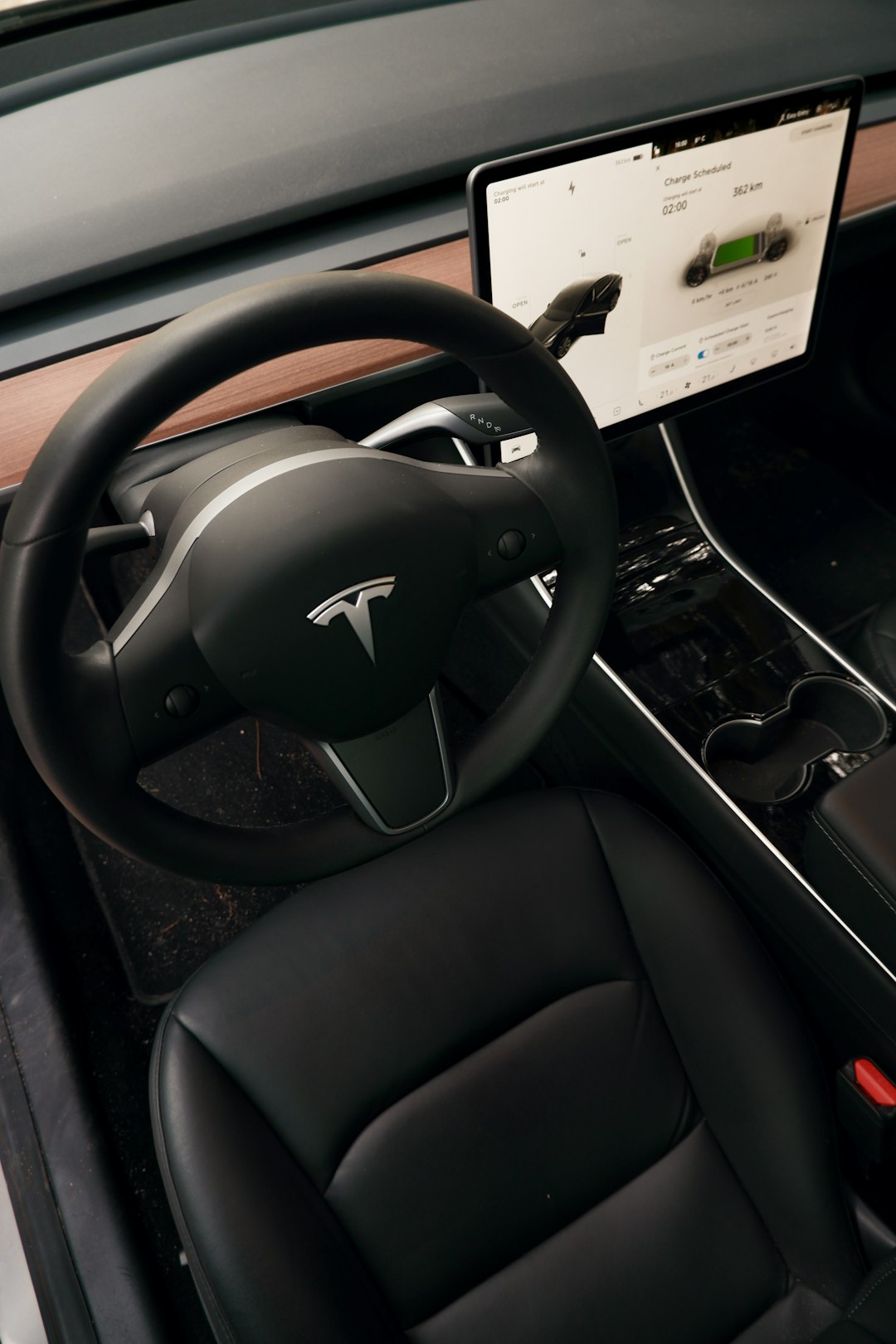Support our educational content for free when you purchase through links on our site. Learn more
Will Tesla Prices Go Down? 7 Surprising Truths for 2025 ⚡️

Imagine waking up one morning to find your dream Tesla suddenly costs thousands less — sounds like a jackpot, right? Well, Tesla’s pricing saga is anything but predictable. From jaw-dropping price cuts on the Model Y to steady premiums on the Model S, the question on every EV enthusiast’s mind is: Will Tesla prices go down in 2025? We’ve crunched the numbers, analyzed market forces, and even peeked behind Elon Musk’s strategic curtain to bring you the most comprehensive, no-nonsense guide on Tesla pricing trends.
In this article, you’ll discover 7 surprising truths about why Tesla prices fluctuate, which models are most likely to get cheaper (or not), and whether waiting for a price drop is a savvy move or a gamble. Plus, we’ll share insider tips on navigating the used Tesla market and decoding government incentives that could save you a bundle. Ready to electrify your knowledge and maybe your next ride? Let’s dive in!
Key Takeaways
- Tesla’s prices fluctuate due to supply-demand dynamics, raw material costs, and fierce EV competition.
- Model 3 and Model Y have seen recent price cuts and may drop further in 2025; Model S and X prices remain stable or rising.
- Government incentives and tax credits significantly impact the effective cost of owning a Tesla.
- The used Tesla market offers bargains but comes with depreciation risks and battery health considerations.
- Waiting for a price drop can save money but risks missing out on current inventory and incentives.
- Tesla’s pricing strategy balances volume growth with maintaining a premium brand image.
- Future models like the Cybertruck and compact Tesla could shake up pricing dynamics.
👉 Shop Tesla Models Now:
Table of Contents
- ⚡️ Quick Tips and Facts: The Lowdown on Tesla Pricing
- 🚗💨 Tesla’s Pricing Rollercoaster: A Brief History of Innovation & Volatility
- 📉 Unpacking the Forces: Why Tesla Prices Fluctuate
- 1. 📊 Supply & Demand Dynamics: The EV Market’s Tug-of-War
- 2. ⚔️ The EV Arms Race: How Competition is Driving Prices Down
- 3. 🔋 Battery Costs & Raw Materials: The Foundation of EV Pricing
- 4. 🏛️ Government Incentives & Tax Credits: A Shifting Landscape
- 5. 🤖 Technological Leaps & Production Efficiencies: The Innovation Factor
- 6. 🌍 Macroeconomic Headwinds: Inflation, Interest Rates, & Recession Fears
- 7. 🎯 Tesla’s Strategic Playbook: Volume Over Margin?
- 🚘 Model by Model Breakdown: Will Your Dream Tesla Get Cheaper?
- 📈 The Used Tesla Market: A Bargain Hunter’s Paradise or a Resale Nightmare?
- 🤔 Is Now the Right Time to Buy a Tesla? Navigating the Purchase Decision
- 🔮 The Crystal Ball: Our Predictions for Tesla Pricing Trends
- ✅ Pros & ❌ Cons of Waiting for a Tesla Price Drop
- 🔚 Conclusion: The Road Ahead for Tesla Buyers
- 🔗 Recommended Links for Savvy Buyers
- ❓ Your Burning Questions Answered: Tesla Pricing FAQ
- 📚 Reference Links: Our Sources & Further Reading
Quick Tips and Facts: The Lowdown on Tesla Pricing
Welcome to the electrifying world of Tesla pricing! ⚡️ If you’re wondering “Will Tesla prices go down?”, you’ve hit the jackpot of curiosity. At Car Brands™, we’ve been tracking Tesla’s price moves like hawks eyeing their prey. Here’s a quick cheat sheet before we dive deep:
- ✅ Tesla prices have fluctuated significantly over the past few years, driven by supply-demand swings, competition, and raw material costs.
- ✅ Recent months have seen price cuts on popular models like Model 3 and Model Y, especially in markets like Australia and the US.
- ❌ However, don’t expect Tesla to become a bargain basement brand anytime soon — premium tech and innovation come at a cost.
- ✅ Government incentives and tax credits can dramatically affect the effective price you pay.
- ✅ The used Tesla market is volatile, with some owners experiencing rapid depreciation.
- ✅ Tesla’s pricing strategy often balances volume sales with margin preservation, so price drops can be tactical rather than permanent.
Curious how all these pieces fit together? Buckle up — we’re about to take a scenic route through Tesla’s pricing landscape. For a broader perspective on quality car brands, check out our detailed review on What Are the 7 Best Quality Car Brands in the World? (2025) 🚗✨.
Tesla’s Pricing Rollercoaster: A Brief History of Innovation & Volatility

Tesla’s journey from niche EV pioneer to global automotive powerhouse is nothing short of a Hollywood blockbuster. But the price tags? They’ve been a wild ride too.
The Early Days: Premium Pricing for Cutting-Edge Tech
- Tesla’s initial Roadster and Model S launched with premium prices, reflecting their groundbreaking battery tech and performance.
- Early adopters paid a premium for the “future on wheels” experience, including over-the-air updates and the Supercharger network.
The Model 3 Revolution: Democratizing Electric Driving
- The Model 3 was Tesla’s bold attempt to bring EVs to the masses with a more affordable price point.
- Initial pricing was aggressive, but supply chain challenges and demand surges caused price fluctuations and delays.
- Tesla’s famous “pricing dance” began here, with multiple price cuts and hikes as production ramped up.
Recent Years: Price Cuts Amid Growing Competition
- As competitors like Ford Mustang Mach-E, Volkswagen ID.4, and Chinese EV brands entered the fray, Tesla responded with strategic price reductions.
- The company also experimented with regional pricing, adjusting costs based on local incentives and market conditions.
- Supply chain issues, especially battery raw material costs, have sometimes pushed prices back up.
For a deep dive into Tesla’s pricing history and market context, explore our Auto Industry News section.
Unpacking the Forces: Why Tesla Prices Fluctuate
Tesla’s pricing isn’t random — it’s a complex interplay of factors. Let’s unpack the main drivers behind those price tags.
1. Supply & Demand Dynamics: The EV Market’s Tug-of-War
Tesla’s prices often reflect the classic economics of supply and demand:
- When demand outpaces supply (think Model 3 launch), prices stay firm or even rise.
- When inventory piles up — as seen recently with hundreds of Model Ys waiting for buyers in Australia — Tesla slashes prices to clear stock.
- Seasonal promotions and “existing inventory” sales are Tesla’s tools to balance this.
2. The EV Arms Race: How Competition is Driving Prices Down
Tesla no longer enjoys a monopoly on cool EVs:
- New entrants like BYD, NIO, and Rivian are pushing prices down with competitive specs.
- Legacy automakers like Ford and Volkswagen are aggressively pricing EVs to capture market share.
- Tesla’s price cuts are often a preemptive strike to maintain dominance.
3. Battery Costs & Raw Materials: The Foundation of EV Pricing
Batteries are the heart (and wallet) of EVs:
- Prices of lithium, cobalt, and nickel fluctuate wildly, impacting Tesla’s cost base.
- Tesla’s investment in Gigafactories and battery tech (like 4680 cells) aims to reduce costs long-term.
- When raw material prices spike, expect Tesla to pass some costs to consumers.
4. Government Incentives & Tax Credits: A Shifting Landscape
- Incentives like the US federal EV tax credit or European subsidies can lower effective prices.
- Changes in policies — such as the phasing out of Fringe Benefits Tax exemptions in Australia — can affect demand and pricing.
- Tesla often adjusts prices based on eligibility for incentives in each market.
5. Technological Leaps & Production Efficiencies: The Innovation Factor
- Tesla’s continuous tech upgrades (Autopilot, battery chemistry) add value but can also justify price increases.
- Production efficiencies at Gigafactories help lower costs, enabling price cuts without sacrificing margins.
6. Macroeconomic Headwinds: Inflation, Interest Rates, & Recession Fears
- Inflation and rising interest rates increase financing costs for buyers.
- Economic uncertainty can dampen demand, pressuring Tesla to offer discounts or incentives.
7. Tesla’s Strategic Playbook: Volume Over Margin?
- Elon Musk has hinted at lowering prices to boost volume and market share, especially in key segments.
- However, Tesla balances this with maintaining a premium brand image and profitability.
For more on Tesla’s market strategy, check out our Car Brand Market Shares insights.
Model by Model Breakdown: Will Your Dream Tesla Get Cheaper?
Let’s get granular. Which Tesla models are likely to see price drops — and which might hold steady or even rise?
Tesla Model 3 & Model Y: The Volume Drivers
| Aspect | Model 3 | Model Y |
|---|---|---|
| Current Price Trend | Moderate recent drops | Significant recent drops |
| Market Demand | High, but cooling slightly | Very high, but inventory rising |
| Competition | Intense from Chinese brands | Intense from SUVs like Ford Mustang Mach-E |
| Production Efficiency | High, Gigafactory optimized | High, Gigafactory optimized |
| Likelihood of Price Drop | ✅ Likely further small drops | ✅ Likely further small drops |
Our Take: If you’re eyeing a Model 3 or Model Y, recent price cuts have made these models more accessible. However, don’t expect fire-sale prices — Tesla is clearing inventory but still values its tech premium.
Tesla Model S & Model X: The Premium Segment
| Aspect | Model S | Model X |
|---|---|---|
| Current Price Trend | Stable to slight increases | Stable to slight increases |
| Market Demand | Niche, luxury buyers | Niche, luxury buyers |
| Competition | Limited direct EV rivals | Limited direct EV rivals |
| Production Efficiency | Lower volume, higher cost | Lower volume, higher cost |
| Likelihood of Price Drop | ❌ Unlikely in near term | ❌ Unlikely in near term |
Our Take: The flagship models are Tesla’s halo cars. Expect price stability or even increases as Tesla adds tech and luxury features.
Tesla Cybertruck & Future Models: What’s on the Horizon?
- The Cybertruck is highly anticipated but faces production delays.
- Pricing is expected to be competitive but subject to change as Tesla finalizes specs and production scale.
- Future models like the rumored compact Tesla could shake up pricing dynamics.
Stay tuned for updates in our Auto Industry News!
The Used Tesla Market: A Bargain Hunter’s Paradise or a Resale Nightmare?
Tesla’s used car market is a rollercoaster 🎢 — some buyers find bargains, others face steep depreciation.
Why Used Tesla Prices Are Dropping
- Rapid depreciation has hit recent Tesla owners hard, especially those with novated leases or short ownership periods.
- New Tesla price cuts make used cars less attractive if they’re priced too close to new models.
- Anecdotal evidence from Tesla owner forums and Facebook groups shows prices dropping by thousands within months.
Pros of Buying Used Tesla
- Lower upfront cost compared to new.
- Access to older models with proven reliability.
- Potential to snag a lightly used Model 3 or Model Y at a discount.
Cons of Buying Used Tesla
- Uncertainty about battery health and warranty coverage.
- Rapid depreciation means resale value can be unpredictable.
- Some buyers report “trapped” feeling due to falling values.
Tips for Used Tesla Buyers
- Check battery health reports and service history.
- Compare used prices against new Tesla prices regularly.
- Consider timing your purchase around Tesla’s inventory sales.
For more on buying used EVs, visit our Car Brand Comparisons section.
Is Now the Right Time to Buy a Tesla? Navigating the Purchase Decision
So, should you pull the trigger or wait for prices to drop further? Here’s our expert take.
Factors to Consider
- Inventory Levels: Tesla’s current stock levels are high, meaning you can get faster delivery and potentially better deals.
- Price Trends: Expect small incremental price drops in the short term, especially on Model 3 and Model Y.
- Incentives: Check local government rebates and tax credits — these can make a big difference.
- Personal Needs: If you need a car now, waiting might cost you in convenience.
- Resale Risk: Be aware of depreciation risks if you plan to sell within a few years.
Our Verdict
- If you want a Tesla today and value convenience, now is a reasonable time to buy.
- If you can wait a few months and want to maximize savings, monitor Tesla’s pricing closely — especially for Model Y.
- For luxury models or Cybertruck, patience may pay off as specs and pricing stabilize.
The Crystal Ball: Our Predictions for Tesla Pricing Trends
Here’s where we put on our futurist hats 🔮 and make some bold calls:
| Prediction | Likelihood | Impact on Buyers |
|---|---|---|
| Further small price cuts on Model 3 & Model Y | High | Good deals for patient buyers |
| Stable or rising prices for Model S & Model X | Medium | Premium buyers pay more |
| Cybertruck pricing to be competitive but volatile | Medium | Early adopters face uncertainty |
| Used Tesla prices to stabilize after initial drop | Medium | Bargain hunters find value |
| Government incentives to phase out gradually | High | Buyers face higher net prices |
Tesla’s pricing will remain a dynamic chess game, balancing innovation, competition, and market forces. Keep your eyes peeled and wallets ready!
Pros and Cons of Waiting for a Tesla Price Drop
✅ Pros
- Potential to save thousands on popular models.
- More inventory options and faster delivery.
- Opportunity to benefit from new tech or updated features.
❌ Cons
- Risk of missing out if prices stabilize or rise.
- Potential inconvenience of waiting for availability.
- Uncertainty around government incentives and market conditions.
👉 Shop Tesla on:
- Tesla Model 3: Tesla Official Website | TrueCar Model 3 | Edmunds Model 3
- Tesla Model Y: Tesla Official Website | TrueCar Model Y | Edmunds Model Y
- Tesla Model S: Tesla Official Website | TrueCar Model S | Edmunds Model S
- Tesla Model X: Tesla Official Website | TrueCar Model X | Edmunds Model X
For more insights on Tesla and the EV market, explore our Car Brand Histories and Auto Industry News categories.
We’ve covered a lot of ground — but what do you think? Will Tesla prices keep dropping, or is this just a temporary dip? Stay tuned for our conclusion and FAQs!
Conclusion: The Road Ahead for Tesla Buyers

After cruising through the twists and turns of Tesla’s pricing saga, here’s the bottom line from the Car Brands™ pit crew:
Positives:
- Tesla continues to lead the EV pack with cutting-edge technology, impressive range, and a robust charging network.
- Recent price cuts on popular models like the Model 3 and Model Y have made Tesla ownership more accessible.
- Government incentives and Tesla’s production efficiencies offer additional savings opportunities.
- The used Tesla market presents potential bargains for savvy buyers willing to navigate depreciation risks.
Negatives:
- Price volatility can be frustrating, especially for owners facing rapid depreciation.
- Premium models like Model S and Model X remain pricey with little sign of near-term discounts.
- Macroeconomic factors and shifting incentives add uncertainty to the buying equation.
- Tesla’s brand perception is currently mixed, influenced by public controversies and market competition.
Our Confident Recommendation: If you’re eager to join the EV revolution and want a Tesla today, the current pricing environment offers reasonable value, especially on the Model 3 and Model Y. However, if you have the luxury of patience, waiting a few months could net you a better deal as Tesla clears inventory and adjusts to market forces. For luxury or upcoming models like the Cybertruck, stay tuned — pricing is still in flux.
Remember, Tesla’s pricing game is dynamic and influenced by many moving parts. Keep an eye on incentives, inventory, and competitor moves to make the smartest purchase decision.
Recommended Links for Savvy Buyers
👉 Shop Tesla Models on:
- Tesla Model 3: Tesla Official Website | TrueCar Model 3 | Edmunds Model 3
- Tesla Model Y: Tesla Official Website | TrueCar Model Y | Edmunds Model Y
- Tesla Model S: Tesla Official Website | TrueCar Model S | Edmunds Model S
- Tesla Model X: Tesla Official Website | TrueCar Model X | Edmunds Model X
Your Burning Questions Answered: Tesla Pricing FAQ

Will Tesla ever offer affordable models for budget-conscious buyers?
Tesla’s mission has always been to accelerate the world’s transition to sustainable energy, which includes making EVs accessible. The Model 3 was a major step toward affordability, and Elon Musk has teased plans for a compact, lower-cost Tesla in the near future. However, “affordable” is relative — Tesla’s pricing reflects advanced battery tech, software, and manufacturing scale. Expect more budget-friendly options over time, but don’t anticipate bargain-basement prices anytime soon. Keep an eye on Tesla’s announcements and Gigafactory expansions for clues.
Read more about “Top 10 Car Brands in the World You Need to Know in 2025 🚗”
How do Tesla’s pricing strategies compare to other electric vehicle manufacturers?
Tesla’s pricing is notably dynamic and strategic. Unlike many traditional automakers that set prices and rarely change them, Tesla frequently adjusts prices based on inventory, competition, and incentives. This agility allows Tesla to respond quickly to market conditions but can cause frustration for buyers. Competitors like Ford, Volkswagen, and Chinese brands tend to have more stable pricing but offer aggressive entry-level pricing to capture market share. Tesla balances premium branding with volume sales, often using price cuts as a tactical tool rather than a long-term strategy.
What factors contribute to the fluctuation of Tesla’s car prices over time?
Several key factors cause Tesla’s prices to ebb and flow:
- Supply and demand imbalances: High demand or oversupply can push prices up or down.
- Raw material costs: Lithium, cobalt, and nickel prices impact battery costs.
- Government incentives: Changes in tax credits and rebates affect effective prices.
- Competition: New EV entrants force Tesla to adjust prices to stay competitive.
- Production efficiencies: Improvements in manufacturing can enable price cuts.
- Macroeconomic conditions: Inflation, interest rates, and economic uncertainty influence pricing decisions.
Read more about “What Are the Top 12 Market Trends & Forecasts for Luxury Car Brands? 🚗 (2025)”
Are there any predictions for when Tesla might reduce the prices of their existing models?
Industry experts and market watchers predict incremental price cuts on the Model 3 and Model Y in the short term, especially as Tesla clears excess inventory in key markets like Australia and the US. However, flagship models like Model S and Model X are expected to hold steady or even increase in price due to luxury upgrades. The Cybertruck’s pricing remains uncertain but competitive. Keep in mind that Tesla’s pricing is a moving target — staying informed through official Tesla channels and trusted automotive news sources is key.
Reference Links: Our Sources and Further Reading
- Why Tesla sales have tanked and why the price will keep dropping … – CarExpert
- Tesla Official Website
- The Guardian: Tesla Dream Car Price Drop
- TrueCar Tesla Listings
- Edmunds Tesla Reviews and Pricing
- US Department of Energy: Electric Vehicle Incentives
- Car Brands™ Auto Industry News
- Car Brands™ Car Brand Market Shares
- Car Brands™ Car Brand Comparisons
Thanks for riding along with us on this Tesla pricing journey! Stay tuned for more electrifying insights from Car Brands™. 🚗⚡







